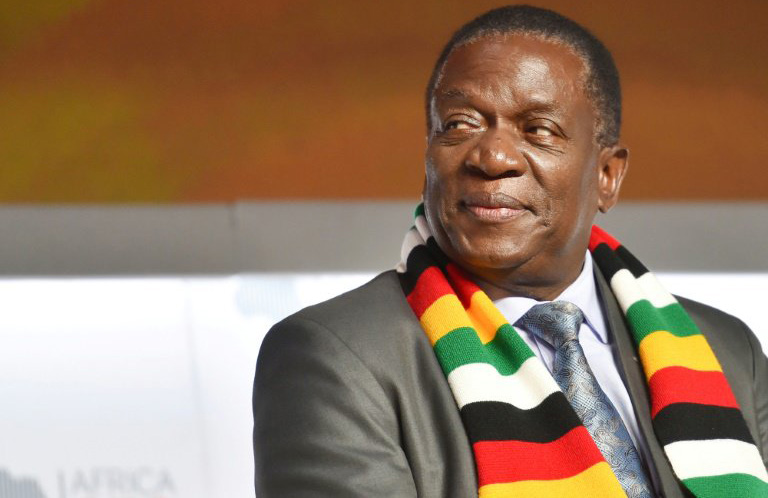Zimbabwe’s President Emmerson Mnangagwa has called for racial unity ahead of landmark elections, telling white farmers their lands will not be taken.
Former President Robert Mugabe’s government supported the seizure of hundreds of white-owned farms which they saw as unfairly taken by settlers.
But Mr Mnangagwa, 75, told a crowd in Harare that the controversial policy was a thing of the past.
“We should cease to talk about who owns the farm in terms of colour,” he said.
“It is criminal talking about that. A farmer, a black farmer, a white farmer, is a Zimbabwean farmer.”
Mr Mnangagwa’s move to ease the concerns of white voters comes ahead of historic elections on 30 July.
It will be the first presidential poll since Mr Mugabe was ousted from power in November, bringing an end to his 37-year rule.
White Zimbabweans have traditionally voted for opposition parties such as the Movement for Democratic Change (MDC) as opposed to Mr Mnangagwa’s Zanu-PF party.
He told the crowd that his government was “racially blind” and acknowledged the failure of his predecessor’s controversial land reforms.
The farm seizures led to a crash in Zimbabwe’s agricultural output, an exodus of skilled white farmers and widespread unemployment among black farm labourers.
There are more than 120 political parties registered for this month’s elections, and there are likely to be 23 presidential candidates to choose from on the ballot.
Mr Mnangagwa is favourite to win the poll, but analysts say he also has enemies – both for overthrowing his former mentor and for being a previous enforcer of Mr Mugabe’s government.
The main opposition leader is Nelson Chamisa, 40, a lawyer and preacher who rose to the top of the MDC in February.
He is hugely popular, especially among the young and unemployed, and would become the country’s youngest ever president if elected.
The youth vote is expected to be key. More than half of Zimbabweans are now under 25 and about 43.5% of registered voters are under 35
